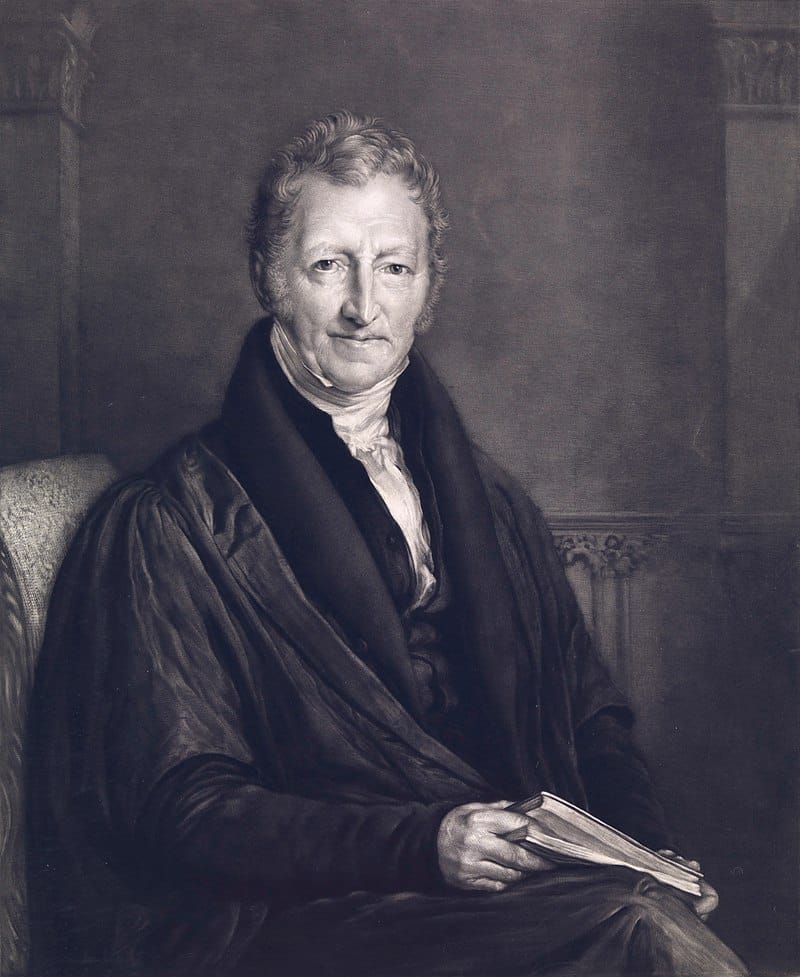The Surprising Connection That Ignited Natural Selection
When we think of Charles Darwin and his groundbreaking theory of evolution, we often picture a naturalist meticulously observing finches in the Galapagos Islands. While Darwin’s observations were crucial, a less-known but equally important influence on his work was the economist Thomas Robert Malthus. This article delves into the surprising connection between these two seemingly disparate figures and reveals how Malthus’s theories on population helped spark one of the most important scientific discoveries in history.
The Seeds of an Idea: Malthus’s “Struggle for Existence”
In 1798, amidst the backdrop of the Industrial Revolution, Thomas Malthus published his influential work, “An Essay on the Principle of Population.” Malthus, deeply concerned by the social ills of overpopulation and poverty, argued that human populations increase exponentially while food production grows at a much slower, linear rate. This inherent imbalance, he posited, would inevitably lead to a “struggle for existence,” with famine, disease, and competition acting as natural checks on unchecked population growth.
While Malthus viewed this struggle as divinely ordained, his ideas would have a profound impact on a young Charles Darwin, who, years later, would stumble upon Malthus’s essay and experience a true “eureka” moment.
Darwin’s Revelation: From Society to the Natural World
In 1838, several years after his groundbreaking voyage aboard the HMS Beagle, Darwin read Malthus’s essay and had a realization that would change the course of scientific thought. He recognized that Malthus’s principle of population applied not only to humans but to all living organisms. In his autobiography, Darwin vividly describes this epiphany:
“In October 1838, that is, fifteen months after I had begun my systematic inquiry, I happened to read for amusement Malthus on Population, and being well prepared to appreciate the struggle for existence which everywhere goes on from long-continued observation of the habits of animals and plants, it at once struck me that under these circumstances favourable variations would tend to be preserved, and unfavourable ones to be destroyed. The result of this would be the formation of new species. Here, then I had at last got a theory by which to work.”
Darwin, having already observed the incredible diversity and variation within species during his travels, now saw Malthus’s “struggle for existence” playing out on a grand scale in the natural world.
Malthus’s Unintentional Contribution: The Missing Piece of Natural Selection
Malthus’s work provided the critical missing piece in Darwin’s emerging theory of evolution by natural selection. Here’s how their ideas intertwined:
- Variation: Darwin recognized that individuals within a species exhibit variation in their traits. Some variations, he observed, might provide advantages in the struggle for resources.
- Competition: Malthus’s concept of limited resources provided the framework for understanding the consequences of this variation. If resources are scarce, individuals with advantageous traits would be more likely to survive and reproduce.
- Differential Survival and Reproduction: This process, where organisms with traits better suited to their environment are more likely to survive and pass those traits on to their offspring, is the essence of natural selection. Over countless generations, this can lead to the evolution of new species.
Distinguishing Darwin from Malthus: A Scientific Lens on a Social Theory
While Malthus’s ideas were instrumental in shaping Darwin’s theory, it’s important to note their differing perspectives:
- Mechanism of Change: Malthus saw the “struggle for existence” as divinely imposed, a means of population control. Darwin, on the other hand, viewed it as a natural process driving adaptation and the diversity of life.
- Directionality: Malthus primarily focused on the implications of his theory for human societies. Darwin, in contrast, recognized its universal application to all living organisms, explaining how life on Earth has evolved over millions of years.
A Legacy of Influence and Ongoing Relevance
The intellectual link between Malthus and Darwin highlights the interconnectedness of scientific thought and how seemingly unrelated fields can inspire groundbreaking discoveries. While Malthus’s theories have been criticized for their social implications and their failure to fully anticipate technological advancements, their impact on shaping Darwin’s thinking is undeniable.
Moreover, Malthus’s work continues to resonate today, as concerns about resource scarcity, environmental sustainability, and the challenges of a growing global population remain pressing issues. Understanding the Malthusian-Darwinian connection provides valuable insights into the dynamic interplay between populations and their environments, reminding us of the complex forces that have shaped life on Earth – and the challenges and opportunities that lie ahead.









